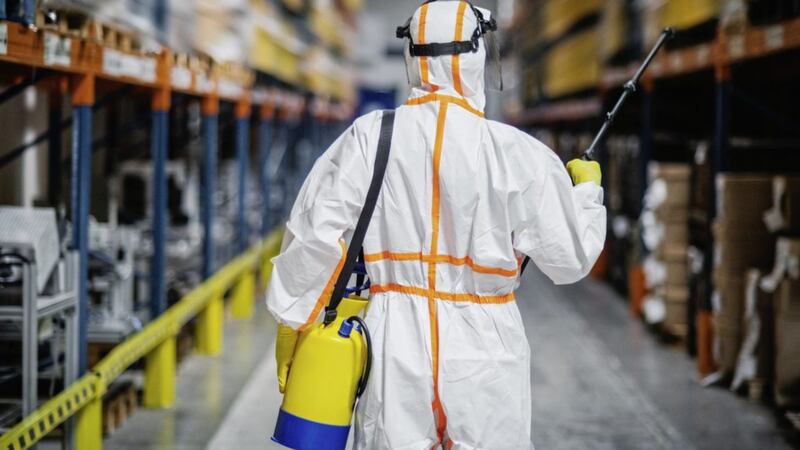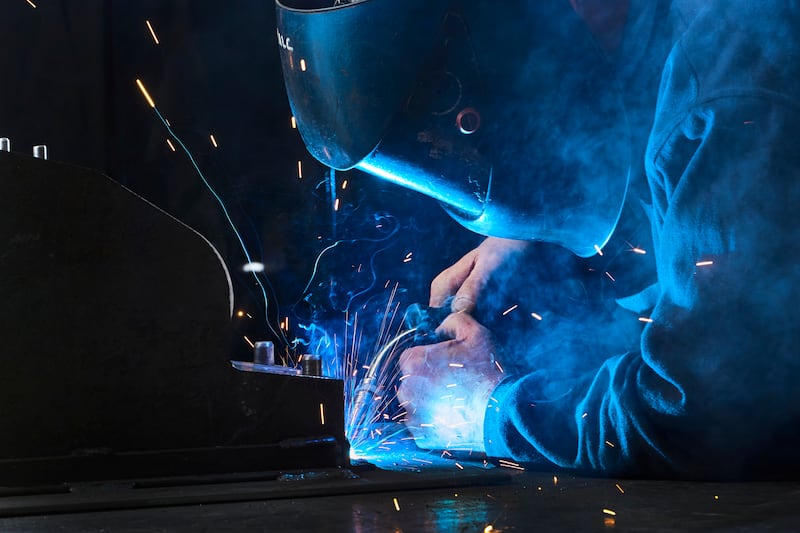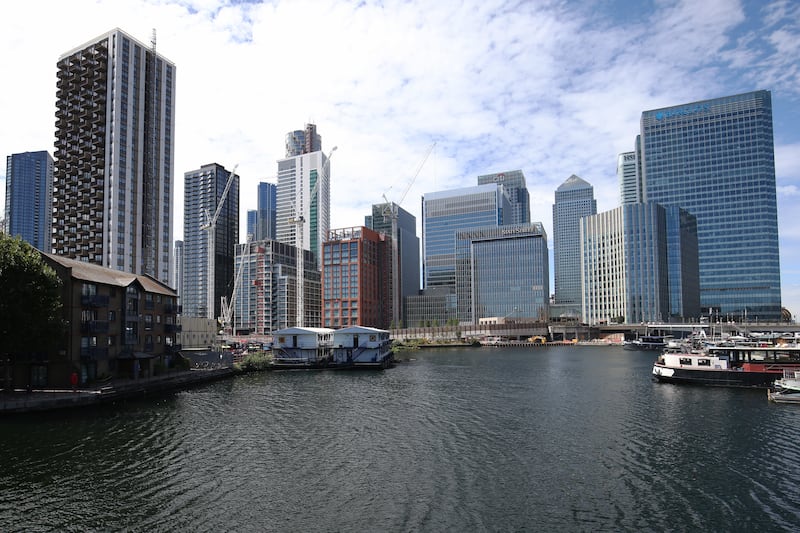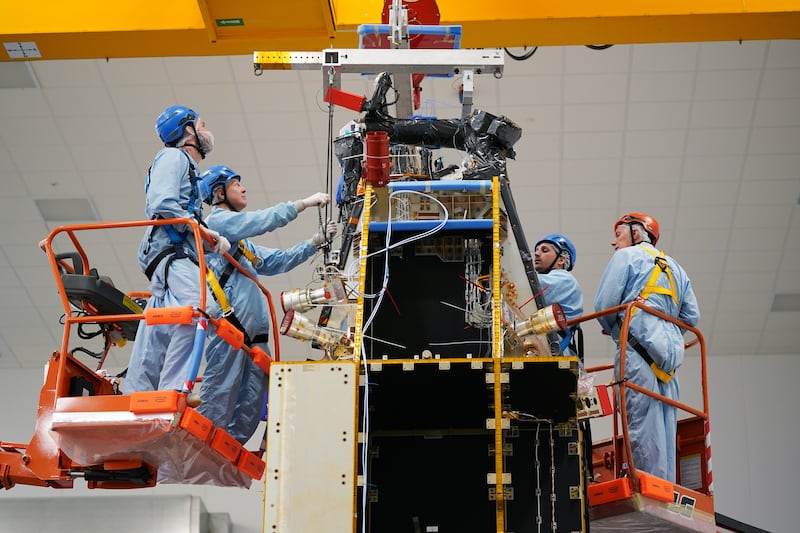The north’s manufacturing sector returned to growth during June, but virtually every other area of the private sector remained firmly in the red as lockdown restrictions were eased.
The latest Purchasing Managers' Index (PMI) from Ulster Bank found that manufacturing is the first of any sector here to return to growth in eight months.
The monthly analysis, produced by IHS Markit is based on the responses of 200 private companies across the manufacturing, construction, retail and services sectors. It’s considered a reliable snapshot of the state of the Northern Ireland economy.
[ READ MORE: George Best Hotel went into administration owing £15mOpens in new window ]
The index put the headline measure of business activity for June at 42.6, significantly up on May’s 18.9, but still below the 50 mark, pointing to a continued overall state of economic decline.
It indicates that while overall output in the private sector continued to fall last month, the pace of that decline slowed considerably.
But the fall in activity in Northern Ireland was still the second-sharpest of the 12 UK regions, behind only Scotland.
The survey also found that companies in the north remain very pessimistic at the prospects for the next 12 months.
Ulster Bank’s chief economist Richard Ramsey said businesses had just endured a quarter, the like of which, they had never experienced before.
He said while the overall quarterly data was “bleak”, it conceals tentative signs of a recovery on a month-to-month basis.
June saw the rate of decline in Northern Ireland’s private sector slow sharply. @Ramseconomics explains the findings of the latest Ulster Bank NI PMI report ?? pic.twitter.com/ZalkGKD1Hu
— UlsterBank Economics (@UB_Economics) July 13, 2020
“Last month was the first time in eight months that any sector returned to growth,” said the economist.
“Manufacturing was the best performer in June, reporting expansion in output and orders for the first time in eight and fifteen months respectively.”
According to the PMI, 46 per cent of local manufacturers reported an uptick in output in June. But staffing levels continued to fall at a rapid pace in the sector for June, with firms cutting staff outnumbering those increasing their headcount by four-to-one.
It was a similar story for the retail sector. Although sales activity stabilised, retailers still cut staff at a rapid rate.
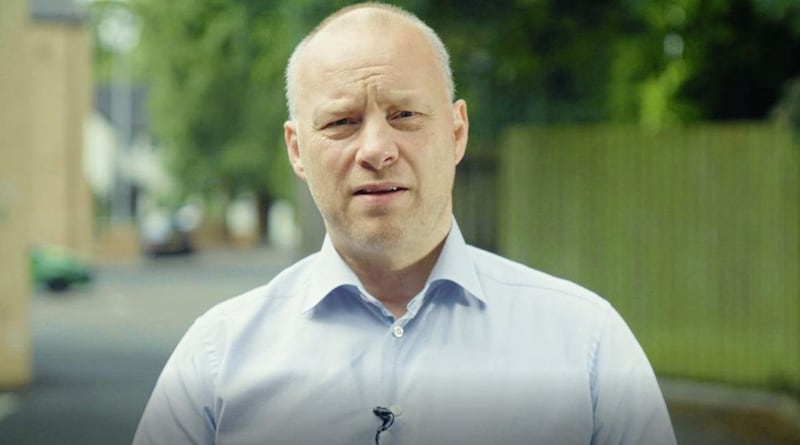
The trend continued in recent days, with Boots and Burger King signalling significant staff cutting plans.
“The retail and the hospitality sectors have been the most adversely affected by the lockdown restrictions,” said Mr Ramsey.
“Reopening of businesses has been accompanied by a surge in costs linked to personal protective equipment (PPE). Retailers saw their input costs rise at the fastest rate in 33 months.”
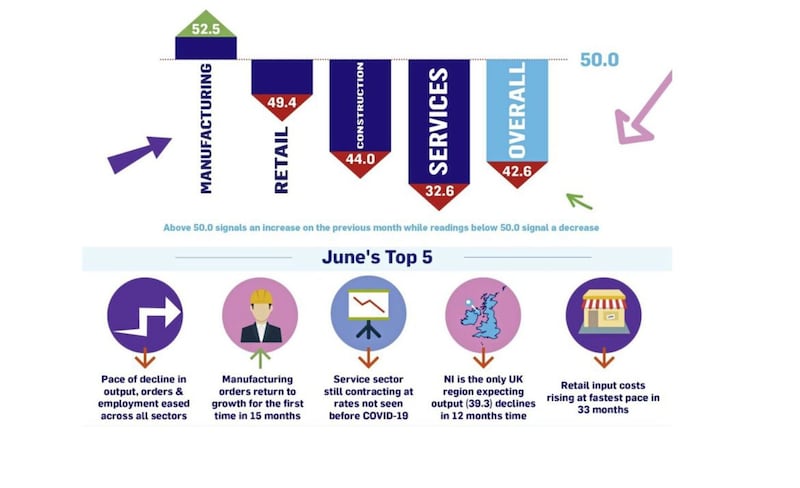
Covid-19’s impact on the hospitality industry during June once again weighed on the north’s wider services sector.
“Last month services firms continued to report rates of contraction in output and orders not seen before Covid-19,” continued the economist.
“It is noted that fewer than one-in-four service sector firms reported a pick-up in business activity in June.”
The reopening of bars and restaurants on July, couple with the cut in VAT for the food and tourism sector contained in Wednesday’s summer economic statement, should improve the picture for the key summer months.
“It may also help boost confidence in Northern Ireland’s private sector which continues to be the most pessimistic region in the UK for output growth in 2021,” added Mr Ramsey.
